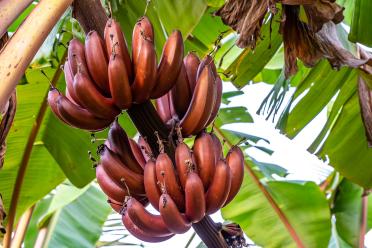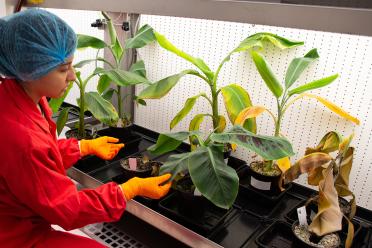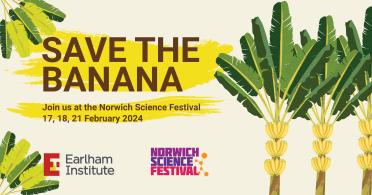
Appearing at this year's Norwich Science Festival on the 17, 18 and 21 Feb, a new interactive activity will invite the public to explore strange and unfamiliar bananas from around the world in an attempt to find genes that might protect the plants.
Around 5 billion bananas are eaten each year in the UK, according to the Fairtrade Foundation. Almost every single one of those is a yellow, hard-skinned Cavendish banana – the variety which accounts for around half of all bananas grown globally.
Due to the banana’s method of reproduction, all Cavendish banana plants are genetic clones. This renders the Cavendish incredibly vulnerable - unable to adapt to change or the emergence of new threats – and a devastating fungus, Panama disease, is ripping through Cavendish plantations worldwide.
While we could all be forgiven for thinking the fruit we see in supermarkets is the only variety of banana in existence, that is not the case. The Cavendish has thousands of wild and cultivated relatives, and one of them could hold the key to its survival.
At the Earlham Institute, researchers in Dr Jose De Vega’s group are examining dozens of different varieties of banana to see if any of them are resistant to the fungus.
If a resistant banana plant is found, the scientists will look for the gene which makes it resistant and see if it is possible to engineer it into the Cavendish banana – giving it the same immunity.
Dr De Vega says there is an urgent need to boost the resilience of bananas, and the same approach could also be used to protect other vulnerable crops.
“There is no breeding and no crossing,” says De Vega. “Cultivated bananas cannot be bred. Any genetic susceptibility in one plant will be present in all plants of the same species.”

